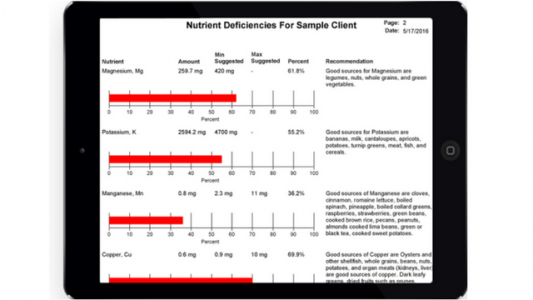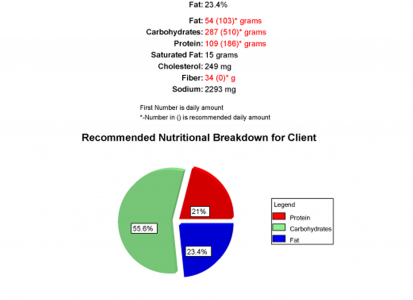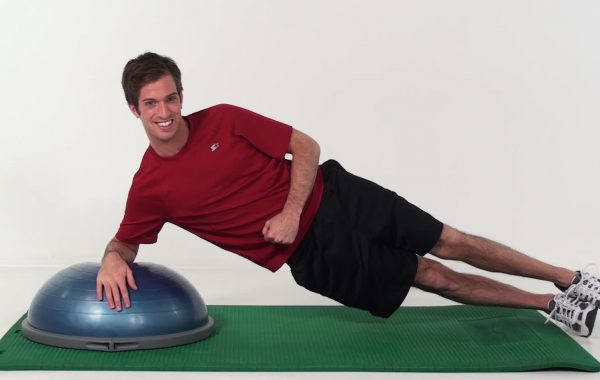Why a Personal Trainer Nutrition Assessment is Important
Personal trainers are experts in fitness, helping clients achieve their wellness goals through tailored exercise programs. However, incorporating nutrition assessments into your services can elevate your practice to the next level. By understanding your clients’ eating habits and nutritional needs, you can help them achieve better results faster. This article explores key tips for mastering personal trainer nutrition assessments, helping you seamlessly integrate them into your business.
1. Start with a Comprehensive Client Intake Process for Your Nutrition Assessment
The foundation of effective personal trainer nutrition assessment is a detailed client intake process. For example, collecting accurate data on your client’s current eating habits, activity level, and wellness goals is crucial.
What to Include in Your Intake:
- Food Diary: Have clients track their meals for five to seven days. This will provide a baseline of their nutritional intake.
- Lifestyle Questionnaire: Include questions about eating schedules, food preferences, allergies, and any medical conditions that might affect their diet.
- Activity Level Assessment: Understanding their physical activity will help in calculating caloric and macronutrient needs.
For efficiency, consider using digital tools like Total PT Fitness which provides a client phone app to collect food diary data and provide the trainer with detailed analysis. This platform can simplify tracking for both you and your clients.
2. Analysis of Macronutrients and Micronutrients are fundamental for Nutrition Assessment
Once you have your client’s food diary, the next step for nutrition assessment is understanding their macronutrient (carbohydrates, proteins, and fats) and micronutrient (vitamins and minerals) intake. For instance, a detailed analysis can show where your client is lacking in certain nutrients. And it can show where they may have excesses (cholesterol, sodium etc.)
Key Focus Areas:
- Macronutrient Ratios: Tailor these based on your client’s goals (e.g., higher protein for muscle gain or balanced carbs for endurance athletes).
- Nutrient Gaps: Identify deficiencies or excesses, such as too much sodium or not enough fiber.
- Hydration: Assess water intake as it’s often overlooked but critical for performance and recovery.
Using software like Total PT Fitness can make a nutrition assessment efficient and accurate, offering reports on nutrient deficits and excesses, recommended foods, and meal plans.

Total PT Fitness Online - Meal Planning - Food Logging
3. Match Realistic and Personalized Goals with Nutrition Assessment
Nutrition advice needs to be actionable and tailored to the individual. Avoid generic recommendations that don’t align with your client’s unique needs.
Tips for Personalization:
- Caloric Needs: Calculate daily caloric requirements based on basal metabolic rate (BMR) and activity levels.
- SMART Goals: Ensure goals are Specific, Measurable, Achievable, Relevant, and Time-bound. For example, “Increase vegetable intake to three servings per day within the next two weeks.”
- Collaborate with Clients: Work together to set achievable targets, considering their preferences and lifestyle.
4. Use the Right Tools to Streamline Personal Trainer Nutrition Assessment
Performing a nutrition assessment manually can be time-consuming and prone to errors. The right tools can streamline this process and improve the quality of your services.
Recommended Tools:
- Nutrition Analysis Software: Programs like Total PT Fitness can generate detailed reports, meal plans, and shopping lists.
- Nutrition Resources: Utilize trusted sources like Academy of Nutrition and Dietetics and Harvard T.H. Chan School of Public Health for reliable nutritional guidelines.
- Educational Resources: Provide clients with simple resources like the USDA’s MyPlate guidelines for better food choices.

5. Educate and Empower Your Clients with Nutrition Assessment Expertise
Your role as a personal trainer goes beyond fitness instruction—you’re also a coach and motivator. Use your nutrition assessment to educate clients about healthy eating habits and empower them to make informed choices.
Strategies for Client Education:
- Visual Aids: Use charts and graphs to explain macronutrient distribution and calorie balance.
- Simple Recipes: Provide easy-to-make meal ideas that align with their goals.
- Ongoing Support: Schedule regular check-ins to track progress and adjust plans as needed.
This collaborative approach fosters trust and ensures clients feel supported throughout their journey. And of Course, Total PT Fitness can help you provide these things.
Boost Your Business with Nutrition Services
In conclusion, incorporating nutrition consultations into your personal training services doesn’t have to be overwhelming. By using a structured intake process, leveraging technology, and focusing on client education, you can offer a holistic approach that sets you apart from the competition. Lastly, not only will this enhance client results, but it will also position you as a well-rounded fitness professional.
Start today by exploring tools and resources to make your nutrition assessment seamless and impactful. Your clients—and your business—will thank you.
You may also be interested in:
Ready to see how easy it is to train more clients, make more money and make your job easier?
Total PT Fitness software elevate your brand and can transform your personal training business. Sign up for your very own free 2 week trial. No obligation, no credit card required.
Professional Software for Personal Trainers and Wellness Professionals
Video exercise, fitness testing, nutrition counseling and phone app for clients

